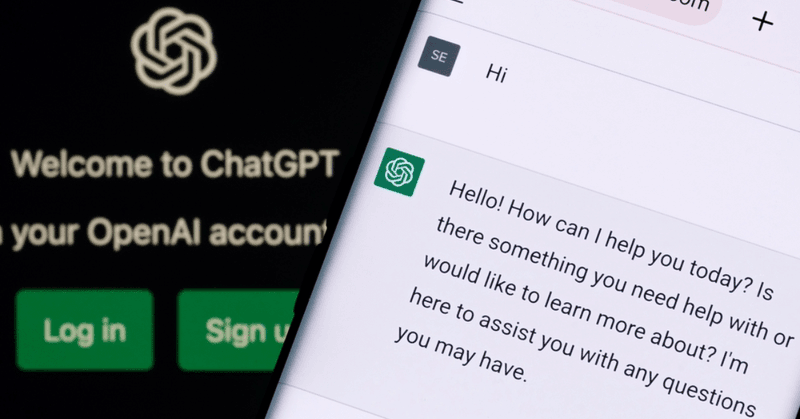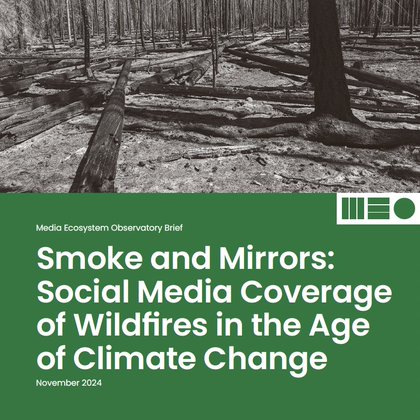
Natasha Goel
@natgl7
Followers
657
Following
8K
Media
39
Statuses
559
@UofT_PolSci PhD Candidate, @PEARL_UofT research fellow, @SSHRC_CRSH CGS funded. Thinking about thinking.
Toronto, Ontario
Joined January 2019
This new article by the Citizen Lab's Gabby Lim (et al) in @techpolicypress examines the growth of economic power in the hands of private firms “incentivized to serve the surveillance state and further a new kind of space military-industrial complex.” Read it here:
techpolicy.press
As private firms dominate space, satellites serve both aid and surveillance—raising urgent questions about power, privacy, and democratic control.
1
9
19
Can ChatGPT change your mind? I wrote for Tech Policy Press about what we find + where AI persuasion research should go from here: How will trust in AI evolve? What can it really persuade us on? Will it reach resistant audiences? https://t.co/rfiY9JRxvg
techpolicy.press
A new wave of research is exploring the persuasive potential of generative artificial intelligence platforms such as ChatGPT, Natasha Goel writes.
0
7
9
Can ChatGPT change your mind? I wrote for Tech Policy Press about what we find + where AI persuasion research should go from here: How will trust in AI evolve? What can it really persuade us on? Will it reach resistant audiences? https://t.co/rfiY9JRxvg
techpolicy.press
A new wave of research is exploring the persuasive potential of generative artificial intelligence platforms such as ChatGPT, Natasha Goel writes.
0
7
9
🚨New article with @melissabaker712 out at Politics and the Life Sciences on the dynamic and conditional effects of Big-5 traits on COVID-19 attitudes and behaviours 🧵👇1/ https://t.co/DTHeeM8lHI
cambridge.org
Big-5 personality traits and their dynamic and conditional effects on COVID-19 attitudes and behaviors - Volume 44 Issue 2
1
7
10
Prof @YamilRVelez, w co-authors @patrickpliu and Scott Clifford, published a working paper in the American Government and Politics section of APSA Preprints entitled, "When Information Affects Attitudes: The Effectiveness of Targeting Attitude-Relevant Beliefs." Details below:
While there is a growing body of work suggesting information can change beliefs, effects on attitudes tend to be muted. We sketch out why this might be the case, drawing attention to the role of belief relevance. See 🧵 below!
0
2
5
Partisans often seem unwavering in their support for a politician/policy, even when faced with opposing evidence. But recent studies show that partisans can be persuaded. So how can both be true? My new @BJPolS paper explores this Q: https://t.co/2IWU2Si8EQ
3
46
125
Now officially forthcoming at the University of Toronto Press! 🥳
3
3
77
New paper out w/ @EricMerkley in @PolBehavior! Link to paper : https://t.co/jfbqIV2g8y Short thread below
4
18
80
In terms of co-partisans, although it was cognitively satisfying to see belief reinforcing-information, there was a limit: individuals recognized norm-defying incivility and punished it accordingly.
1
0
1
We see that incivility is consequential, but not always in the ways we expected. In terms of the out-partisans online, ppl likely have some expectation of civility, absent other information, and their expectations can be violated with minimal exposure.
1
0
1
Interestingly, we find that people do punish the incivility of co-partisans. The presence of the control here suggests that respondents rewarded co-partisans for being critical of the out-party, but this benefit is extinguished when they are expressed in an uncivil manner.
1
0
2
We do, however, see some effect of the uncivil treatment on broader out-party evaluations (feeling thermometer).
1
0
1
Point allocation difference between uncivil out-party profiles and civil ones were not significant. Comparison with the control (no tweets) suggests that ppl may punish out-partisans for any opposing views, regardless of how they are stated.
1
0
2
All participants were Player 1 in our trust game. Participants were assigned to either control (demographics + no Tweets), civil condition (demographics + civil Tweets), or uncivil condition (demographics + uncivil Tweets). They played 2 rounds of the game (out-party & in-party).
1
0
1
New paper out w/ @EricMerkley in @PolBehavior! Link to paper : https://t.co/jfbqIV2g8y Short thread below
4
18
80
🚨Does elite ideological polarization lead to mass ideological polarization? My latest article in European Journal of Political Research (@EJPRjournal) provides **limited** evidence that it is the case. Let's break it down 🧵
1
26
127
I'm happy to share a report @bergeron_thom and I been working on with the @MediaEcosystem. Our findings reveal that, despite the rise in social media attention on wildfires, coverage fails to connect these events to climate change. 1/2 Check it out: https://t.co/3dn7PtbYTl
meo.ca
November 2024 — The 2024 Jasper wildfire garnered widespread media attention across Canada, despite a smaller total area burned than some catastrophic wildfires that occurred in 2023. This heightened...
2
4
13









